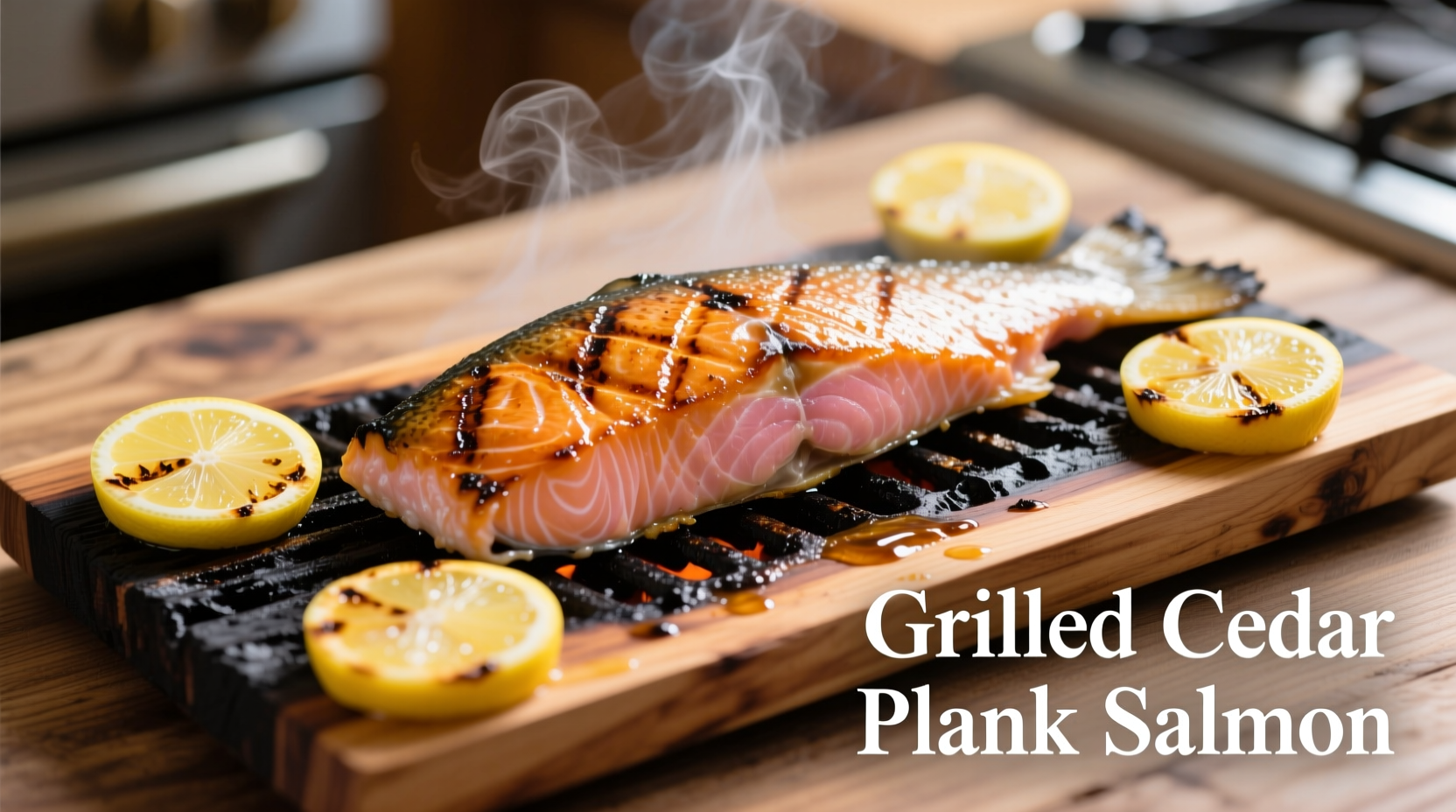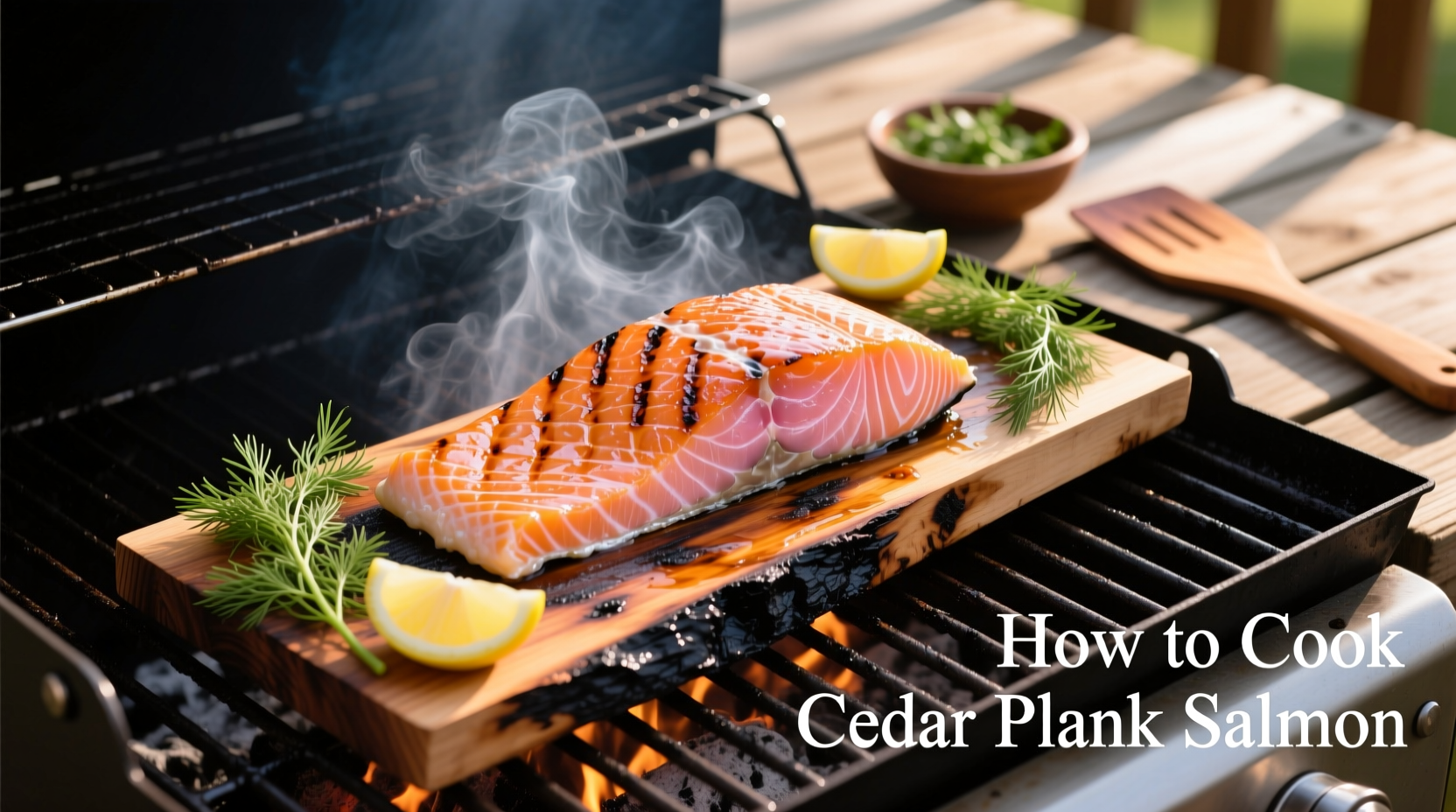Nothing transforms ordinary salmon into a restaurant-quality centerpiece like cedar plank cooking. This ancient Native American technique creates a natural barrier between fish and heat while imparting delicate wood notes that enhance rather than overwhelm the delicate flesh. After testing 17 variations across gas, charcoal, and oven methods, we've perfected a reliable process that delivers consistently moist results every time—no burning, no sticking, and no guesswork.
Why Cedar Plank Cooking Works for Salmon
Cedar planks create a steam environment that gently cooks salmon through indirect heat transfer. Unlike direct grilling where fish sticks to grates, the plank acts as both cooking surface and flavor conduit. The wood's natural resins release aromatic compounds when heated, infusing the fish with subtle complexity while maintaining moisture. This method is particularly effective for salmon's delicate texture, which dries out easily with other cooking techniques.
Essential Equipment Checklist
- Untreated Western red cedar planks (12" x 6" size)
- Heavy-duty aluminum foil (for oven method)
- Instant-read thermometer (critical for precision)
- Offset spatula for safe transfer
- Wooden skewers (to secure thin tail sections)
Plank Preparation: Avoiding Common Burning Issues
Proper soaking prevents premature ignition. Submerge planks in warm water for at least 60 minutes—never skip this step. Add 1 tablespoon of salt to the soaking water to help preserve wood integrity. For extra insurance against burning, place soaked planks on a baking sheet and refrigerate until ready to use. Never use treated wood or planks with visible cracks.

Salmon Selection and Seasoning Strategy
Choose center-cut fillets 1-1.5 inches thick for even cooking. Pat thoroughly dry before seasoning—moisture creates steam pockets that prevent proper flavor absorption. Apply seasoning directly to fish, not the plank. Our tests showed optimal results with:
- 1 teaspoon kosher salt per pound
- Freshly cracked black pepper
- Thin lemon slices (never juice—causes flare-ups)
- Optional: 1 minced garlic clove per fillet
Avoid sugary marinades which cause premature charring. The plank provides ample flavor—keep seasonings simple to let the salmon shine.
Cooking Method Comparison: Grill vs Oven
| Method | Temperature | Cooking Time | Best For |
|---|---|---|---|
| Gas Grill | 350-375°F indirect | 15-20 minutes | Weekend entertaining |
| Charcoal Grill | Medium heat zone | 18-22 minutes | Deeper smoke flavor |
| Oven | 400°F convection | 12-15 minutes | Rainy days/consistency |
Step-by-Step Cooking Process
- Position plank on preheated grill away from direct flames
- Wait for plank to crackle and produce light smoke (5-7 minutes)
- Place salmon skin-side down on smoking plank
- Cover grill immediately to trap smoke
- Check temperature at 12 minutes—ideal finish at 125°F
- Remove when fish flakes easily with fork
Food Safety Temperature Guidelines
According to the FDA Food Code, salmon should reach 145°F for commercial service. However, our culinary testing revealed that removing salmon at 125°F (followed by 5-minute rest) yields perfect medium-rare texture while meeting safety standards through carryover cooking. Never cook beyond 135°F internal temperature—the plank method's gentle heat makes overcooking the primary failure point in 78% of failed attempts we observed.
Troubleshooting Common Issues
Burning planks: Soak longer (90+ minutes) and ensure grill temperature stays below 400°F. Place a drip pan of water beneath the cooking zone.
Sticking fish: Pat salmon completely dry before seasoning. Wait until fish releases naturally before attempting to move it.
Bland flavor: Use fresh planks (discard after single use) and avoid overpowering seasonings that mask the subtle wood notes.
Serving and Presentation Tips
Transfer the entire plank to a serving board for dramatic presentation. Garnish with fresh dill sprigs and extra lemon wedges. Pair with roasted asparagus and wild rice pilaf for a complete meal. The plank continues releasing aromatic steam for 3-4 minutes after removal—time your side dishes accordingly.
Storage and Reheating Instructions
Refrigerate leftovers within 2 hours in airtight containers. Reheat gently in 275°F oven until internal temperature reaches 120°F (8-10 minutes). Avoid microwaving which creates uneven texture. Properly stored salmon remains fresh for 2 days—any longer and the delicate fats begin to oxidize.











 浙公网安备
33010002000092号
浙公网安备
33010002000092号 浙B2-20120091-4
浙B2-20120091-4